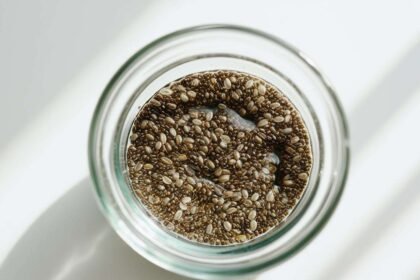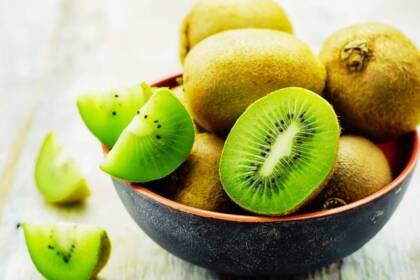High blood pressure, or hypertension, is a major public health concern affecting nearly half of the adult population in the United States.
According to the Centers for Disease Control and Prevention (CDC), one of the key culprits behind this widespread issue is excessive sodium intake.
Despite dietary guidelines recommending less than 2,300 milligrams of sodium per day, the average American consumes over 3,400 milligrams daily – more than 1,000 milligrams beyond the healthy limit.
This imbalance significantly increases the risk of heart disease, stroke, and other cardiovascular issues.
But here’s an unexpected twist: while most advice focuses on reducing sodium, a recent study published in the Journal of Nutritional Science highlights another side of the equation – increasing potassium intake.
Even more interesting, it points to a humble, often overlooked food that might help balance this nutrient ratio: potatoes.
The Potassium-Sodium Balance: Why It Matters
Sodium and potassium are two electrolytes that work together to maintain fluid balance, nerve function, and muscle contractions.
However, when sodium levels soar and potassium intake remains low – a common scenario in the typical American diet – it disrupts this balance, leading to fluid retention, increased blood pressure, and added stress on the heart.
Dr. Connie Weaver, lead researcher of the study, emphasizes that focusing only on sodium reduction is only “half of the story.”
She argues that potassium plays an equally important role in managing blood pressure, and the potassium-to-sodium ratio may be the real key to cardiovascular health.
Improving this ratio by increasing potassium intake can help counteract the negative effects of high sodium consumption.
The Study: Potatoes vs. Supplements
In a controlled clinical trial involving 30 men and women who were either prehypertensive or hypertensive, researchers set out to examine how dietary potassium affects sodium retention and blood pressure.
Participants were asked to include a daily serving of potatoes – either baked or boiled without added fat – into their regular American diet.
The findings were eye-opening. Including a single serving of cooked potatoes daily:
- Reduced sodium retention, helping to lower fluid buildup in the body.
- Improved systolic blood pressure more effectively than the control group.
- Produced better results than potassium supplements, suggesting that whole foods might offer unique benefits due to their natural nutrient combinations – what researchers refer to as the “food matrix.”
Interestingly, baked French fries – often criticized in popular health discourse – did not show the same benefits.
However, they also didn’t worsen blood pressure, indicating they may be neutral when eaten in moderation as part of an otherwise balanced diet.
Potatoes: A Nutrient Powerhouse in Disguise
Potatoes have long been stigmatized as an unhealthy starchy food, especially when compared to their vibrant orange cousin, the sweet potato. But that reputation may not be entirely fair. When prepared healthfully – think baked, boiled, or roasted without excess fat or salt – potatoes are far from being just “empty carbs.”
In fact, they are rich in:
- Potassium – A medium-sized potato provides more potassium than a banana.
- Vitamin C and B5 – Important for immune support and energy metabolism.
- Dietary fiber – Supports digestive health and satiety.
- Antioxidants – Including flavonoids, carotenoids, and phenolic acids that help combat inflammation and oxidative stress.
This nutrient profile makes potatoes a valuable ally in maintaining cardiovascular health, especially considering that most Americans fall significantly short of the recommended daily potassium intake.
The Bigger Picture: It’s About the Whole Diet
One of the most important takeaways from this study is the emphasis on total diet quality rather than demonizing or glorifying individual foods.
As Dr. Weaver notes, observational studies often mislead people into thinking certain foods are inherently “bad” or “good” without considering the broader dietary context.
For example, while French fries are typically seen as unhealthy due to added fats and salt, this study found that when baked and consumed in controlled portions, they didn’t negatively affect blood pressure in the short term.
This nuance underscores the importance of how a food is prepared and consumed, not just the food itself.
It also reminds us that supplements aren’t always the best solution. Although potassium supplements are widely available, the study showed that potassium from whole foods like potatoes had a more beneficial effect on sodium retention and blood pressure.
This supports the growing body of evidence that nutrients are best absorbed and utilized by the body when they come from natural sources.
Practical Tips for Including Potatoes in a Heart-Healthy Diet
If you’re looking to boost your potassium intake and support healthy blood pressure, here are some easy ways to add potatoes to your meals:
- Baked potatoes: Top with Greek yogurt and herbs instead of sour cream and butter.
- Boiled potatoes: Toss with olive oil, lemon, and parsley for a simple side dish.
- Potato salad: Use a vinaigrette dressing instead of mayonnaise to keep it lighter.
- Roasted potatoes: Combine with other potassium-rich veggies like spinach, sweet potatoes, and tomatoes.
Avoid deep-frying or loading them with cheese, bacon, and excessive salt to keep the benefits intact.












